Car-Centric

Rick Steves on Walkability Lessons From Europe
Many of Europe’s pedestrian-friendly, transit-rich cities weren’t always that way.

Road Design Still Privileges Cars
Author Jeff Speck discusses the progress made since he first wrote Walkable City–and how far we still have to go to build streets that are safe for all.
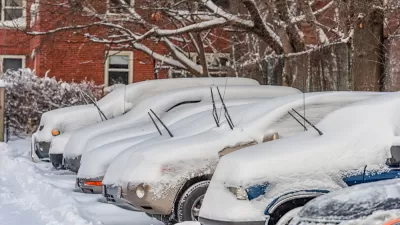
Research Quantifies the High Price of the Massachusetts Car Economy
Car culture isn't free, even for people who don't own cars.
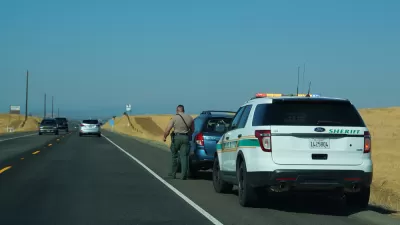
The Car-Centric World and the Ongoing Expansion of Police Powers
While cars are still equated with freedom of mobility and personal liberty, they've also offered courts the chance to expand police powers in the public realm, time and time again.

More People Own Cars, Including the Poor
Increasing car ownership and shifting demographics means planners need to rethink the car-centric equation, according to this article.
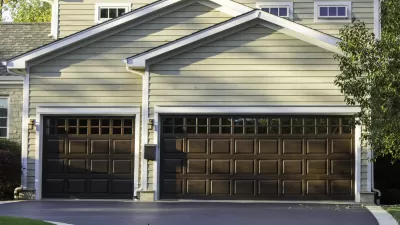
Support One Car Families to Achieve Local Transportation Goals
Cities that are serious about transportation goals need to think seriously about supporting families who choose to live low car lifestyles.
Court Ruling Sides With Regional Officials Over Statewide Climate Goals
The California Supreme Court sided with the San Diego Association of Governments on July 13 in the first court case to decide how regional planning agencies must meet state-required reductions in greenhouse gas emissions from transportation.
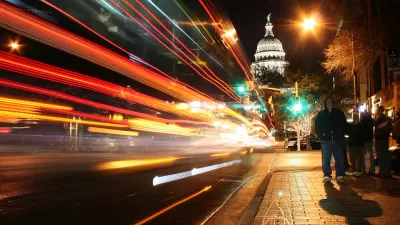
Casting Doubt on Yield-to-Transit Laws
Austin planners are considering a law designed to ensure bus service performance by requiring drivers to allow buses to merge after making a stop, but transit advocates point to a body of research that casts doubt on the efficacy of such laws.
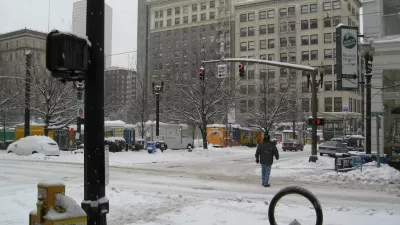
Portland Has a Bad Snow Day
Following in the footsteps of the "snowmageddon" events experienced by Atlanta in January 2014, Portland, Oregon had a surprising amount of difficulty with a small amount of snow this week.

50 Steps to Taking the Carbon Emissions Out of Transportation
The new "50 Steps Toward Carbon-Free Transportation" report examines the gulf between the reality of the U.S. transportation system and the innovations that will be necessary to achieve a carbon-free future.
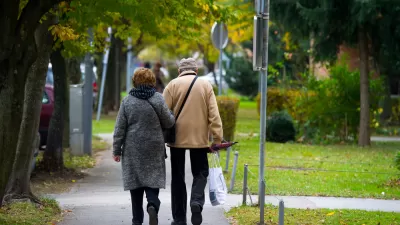
Suburbs Are Failing the Elderly
Around two-thirds of Baby Boomers in metropolitan areas live in the suburbs. But as they age, suburbia seems less and less hospitable.
New Relay Bike Share System Latest Step Toward Atlanta's Multi-Modalism
Atlanta is the latest among a roster of cities offering bikeshare systems around the United States. Few of those cities, however, are so decidedly devoted to the automobile.
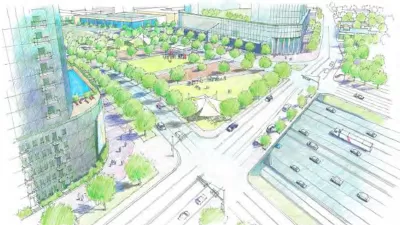
A New Ally in the Fight Against Car-Centric Planning in Dallas: TxDOT
The Texas Department of Transportation (TxDOT) has envisioned a future for Downtown Dallas that includes more downtown and fewer freeways.
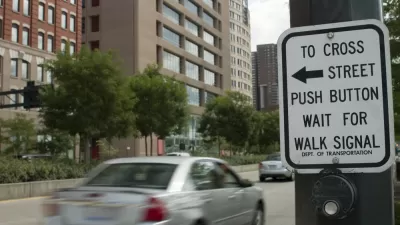
In Support of the Right to Cross the Street
Benjamin Ross argues that the walk signal is a fundamentally flawed approach to creating walkable streets and shareable roadways—making walking slower, less convenient, and more dangerous.
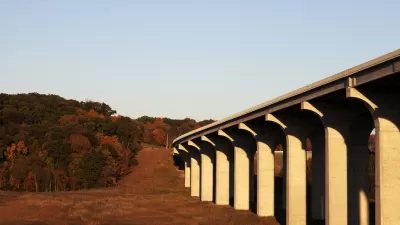
Northeast Ohio Long-Term Planning Aims to Reverse Legacy of Car-Centric Planning
The Northeast Ohio Areawide Coordinating Agency (NOACA) will begin a new long-term planning process. Early indications are that the new plan will focus on providing transportation options to low-income people with no access to cars.

So Much for Peak VMT
Many observers and planners had hoped 2007 was the peak of vehicle miles travelled in the United States. After record-breaking increases in driving and auto sales, what are we to make of the present and future of driving in the United States?
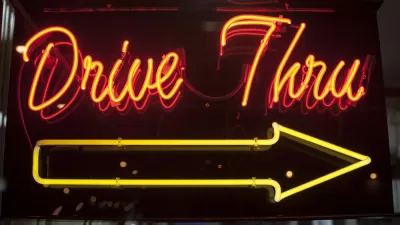
Controversy Over Drive-Throughs in Minneapolis Gains National Attention
A proposal in Minneapolis would restrict the development of drive-throughs, in pedestrian-friendly parts of the city, as a safety measure for all non-car users of the street.
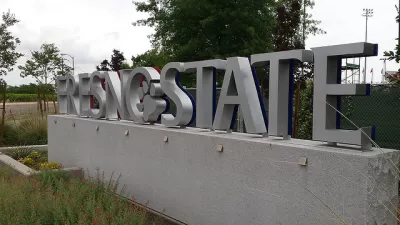
How One University Will Become Less Car-Centric
Fresno State University in California has released plans for a suite of changes that will redefine its approach to transportation—away from a devout focus on cars and toward more transportation options.
Urban Design for Planners 1: Software Tools
This six-course series explores essential urban design concepts using open source software and equips planners with the tools they need to participate fully in the urban design process.
Planning for Universal Design
Learn the tools for implementing Universal Design in planning regulations.
planning NEXT
Appalachian Highlands Housing Partners
Mpact (founded as Rail~Volution)
City of Camden Redevelopment Agency
City of Astoria
City of Portland
City of Laramie


































